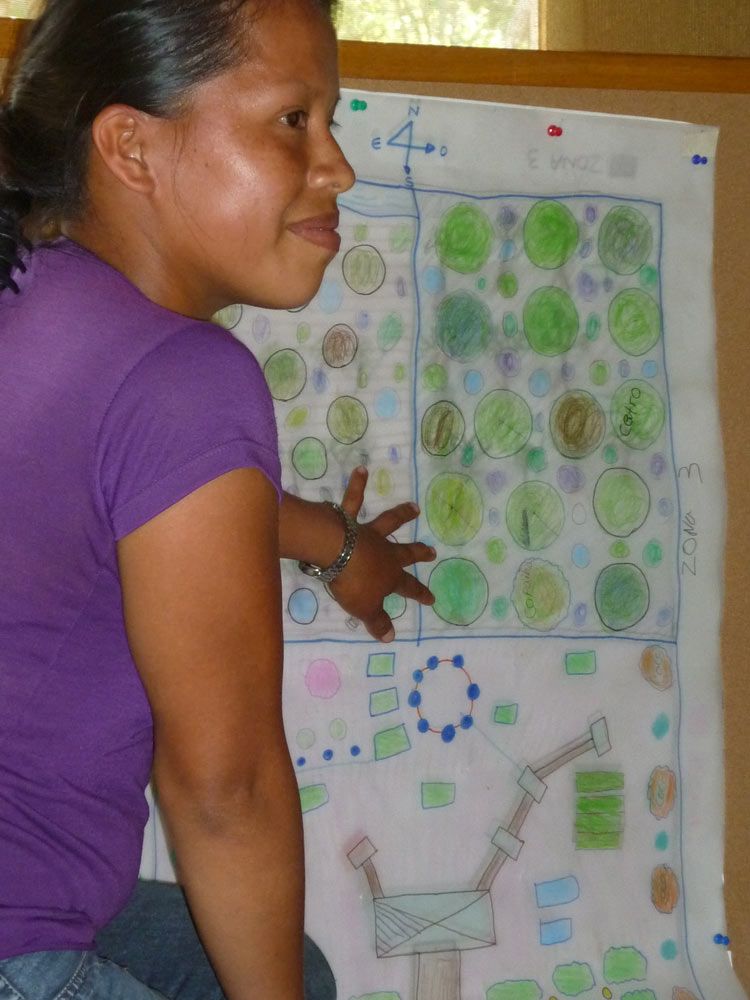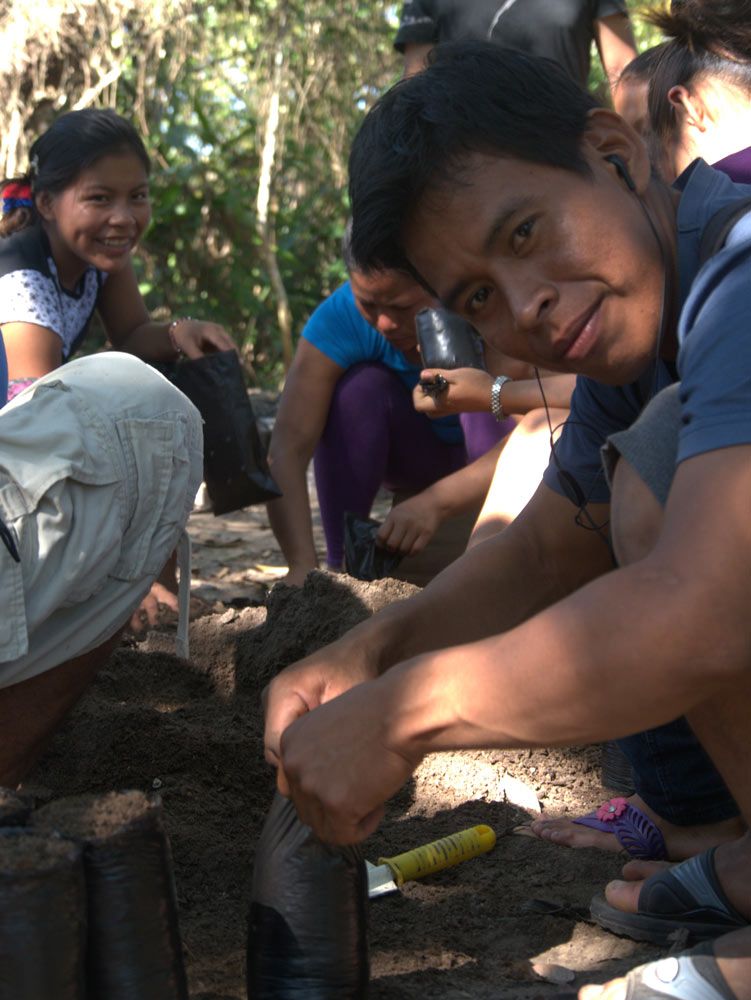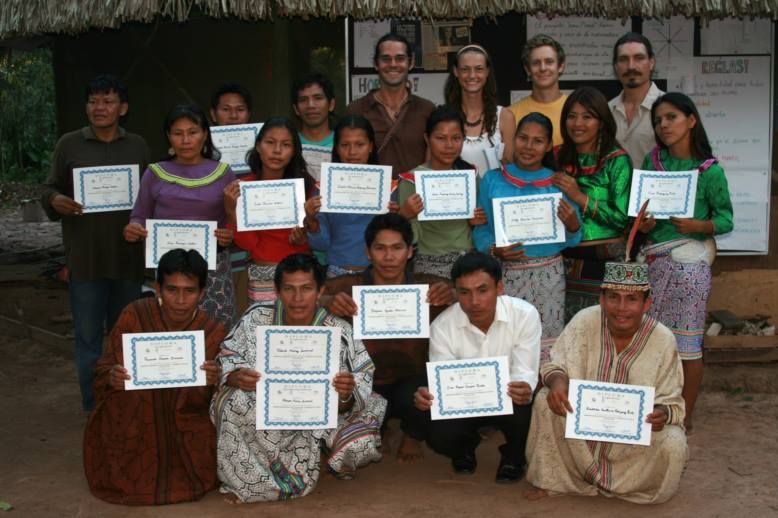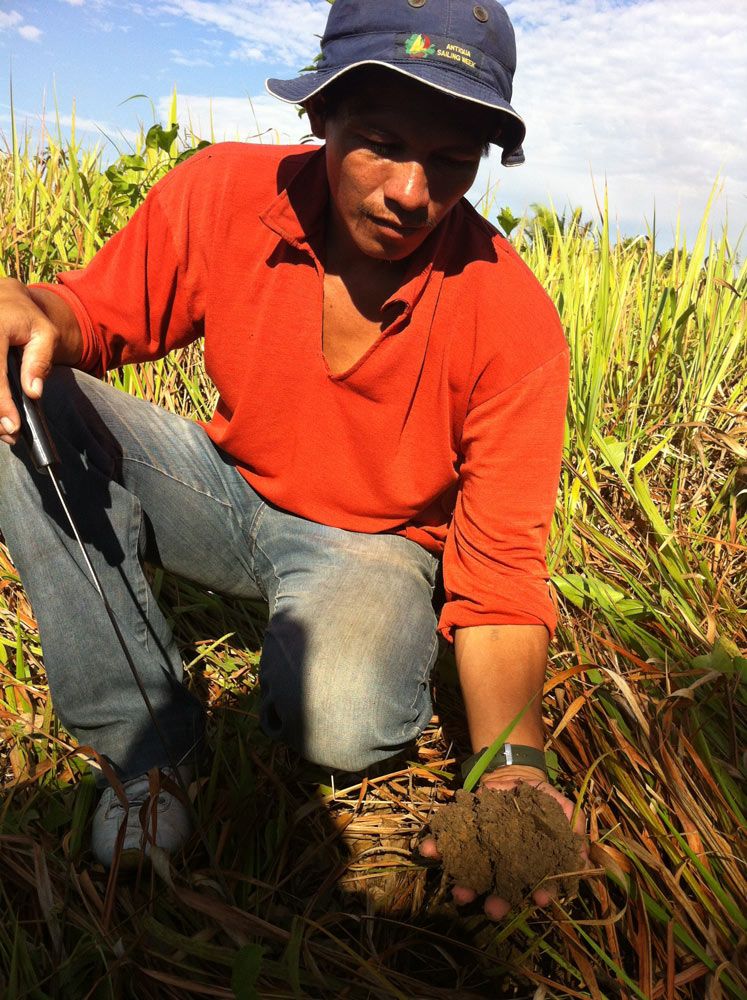By
What an exciting summer for the Chaikuni Institute, our sister organization Alianza Arkana and partners RECOVER & Terra Genesis International!
For 17 days at the beginning of August our organisations came together to lead Chaikuni's first Permaculture training course: an innovative initiative teaching hands-on ecosocial design for Shipibo youth in the Peruvian Amazon. The Shipibo Ecosocial Entrepreneurship Diploma (SEED) aims to revitalize degraded landscapes while improving economic and social well-being for families and communities. The project is set in the deforested and barren landscape surrounding Yarinacocha, a major hub for Shipibo culture and commerce.
These indigenous communities lost their forests due to industrial extraction of timber, oil development and cattle ranching which started pushing into the rainforest in the 1950s and 60s. What is left for families to survive on today is a tragic landscape dominated by thick grasslands and destructive fire regimes, causing many rural youth to abandon their traditional culture and migrate to urban centers in search of employment.
We know it doesn't have to be this way.
The SEED project is focused on educating youth between the ages of 16 and 35 to overcome these pressures by creating thriving agro-ecosystems in their own back yards using Permaculture. Over the course of the training we taught classes on the ethics & principles of Permaculture, zones, sectors, and nutrient cycles. We also led experiential modules on successional agroforestry, nursery management, fire breaks, irrigation, companion planting, nutrition, food security and waste management. Most importantly we taught the Permaculture design process. We encountered many challenges teaching this: spatial awareness and scale representing particular cultural hurdles. We overcame these challenges by working within the Shipibo cultural context and thereby have provided a powerful tool of empowerment for these young Shipibo farmers – Permaculture design. This will enable these young people to collaboratively design and implement systems that are culturally and ecologically regenerative whilst simultaneously laying the foundation for a resilient local economy based on non-timber forest products such as superfoods, medicinals and oils.

By revitalizing the practice of minga (shared communal labor), we were able to implement demonstration plots in participating communities – we will be carrying forward this vibrant social technology in all aspects of the project. In line with our strong commitment to integrate traditional knowledge and skills into the training, we invited Shipibo elders to share their wisdom, perspectives and advice; to teach about plant medicines; and to hold traditional healing ceremonies for the participants. For many, it was their first time engaging with these elements of their culture which, ironically, are phenomena that have made the Shipibo famous at both national and international levels.
Of critical importance to the course was the co-teaching relationship we developed with two Shipibo permaculturalists who acted as the cultural and conceptual bridge. Without their translations and reformulations many of the teachings would have been misconstrued or simply lost. This proved vital in explaining complex concepts in a culturally appropriate manner that resonated with the lives and realities of the participants and effectively reconciled Permaculture with the indigenous worldview. Through this ongoing adaptive learning pathway we hope to create an integrated and holistic approach for education and action in this time of great change.
Everyone left the training inspired and motivated to return to their community land and begin working with it using their new Permaculture skills and perspective.

“…before I came to this training my land seemed so big to me and I was lazy and hadn't planted anything. Now that I have learned Permaculture, I can see that it is actually very small, and I need more land on which to implement my vision. I am going to start with cultivating all the land I have and create my perma-chakra (forest garden), then I'll find more land and plant that, too.”

Another, looking out on the vast, deforested grassland in front of us said: “Come back in a few years and all of this will be Rainforest again.”
Over the next year we will be supporting the participants to implement the first phase of succession on land in their communities. By calling together our burgeoning Permaculture team to hold clearing and planting mingas and then implementing their own designs, we plan to bring 4 hectares (approximately 10 acres) into the production of polycultures in the initial phase.

Stay tuned for updates on how you can support the continuation of this ground-breaking work by donating to the crowd funding campaign coming soon!
Click here for more photos & to like our Facebook page

